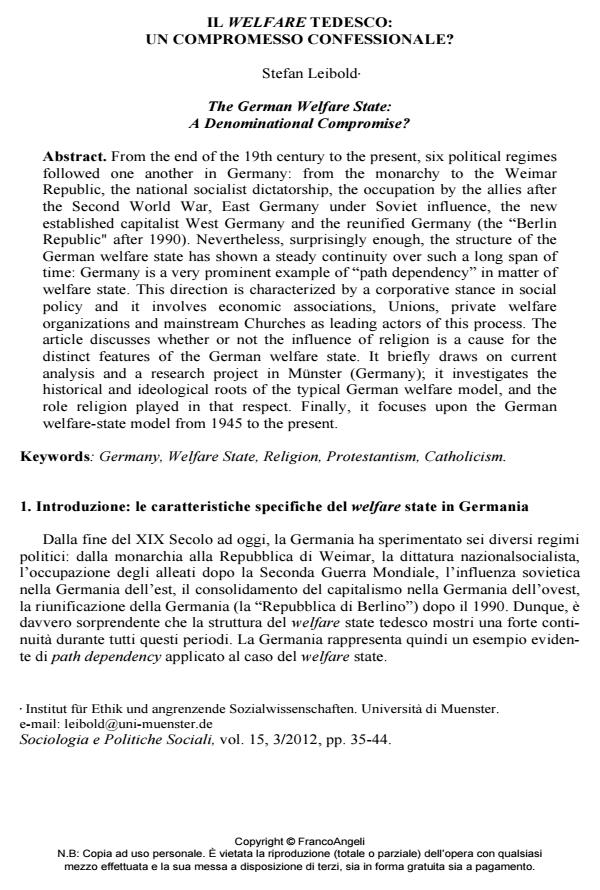Il welfare tedesco: un compromesso confessionale?
Titolo Rivista SOCIOLOGIA E POLITICHE SOCIALI
Autori/Curatori Stefan Leibold
Anno di pubblicazione 2013 Fascicolo 2012/3
Lingua Italiano Numero pagine 10 P. 35-44 Dimensione file 214 KB
DOI 10.3280/SP2012-003004
Il DOI è il codice a barre della proprietà intellettuale: per saperne di più
clicca qui
Qui sotto puoi vedere in anteprima la prima pagina di questo articolo.
Se questo articolo ti interessa, lo puoi acquistare (e scaricare in formato pdf) seguendo le facili indicazioni per acquistare il download credit. Acquista Download Credits per scaricare questo Articolo in formato PDF

FrancoAngeli è membro della Publishers International Linking Association, Inc (PILA), associazione indipendente e non profit per facilitare (attraverso i servizi tecnologici implementati da CrossRef.org) l’accesso degli studiosi ai contenuti digitali nelle pubblicazioni professionali e scientifiche.
From the end of the 19th century to the present, six political regimes followed one another in Germany: from the monarchy to the Weimar Republic, the national socialist dictatorship, the occupation by the allies after the Second World War, East Germany under Soviet influence, the new established capitalist West Germany and the reunified Germany (the "Berlin Republic" after 1990). Nevertheless, surprisingly enough, the structure of the German welfare state has shown a steady continuity over such a long span of time: Germany is a very prominent example of "path dependency" in matter of welfare state. This direction is characterized by a corporative stance in social policy and it involves economic associations, Unions, private welfare organizations and mainstream Churches as leading actors of this process. The article discusses whether or not the influence of religion is a cause for the distinct features of the German welfare state. It briefly draws on current analysis and a research project in Münster (Germany); it investigates the historical and ideological roots of the typical German welfare model, and the role religion played in that respect. Finally, it focuses upon the German welfare-state model from 1945 to the present.
Parole chiave:Germany, Welfare State, Religion, Protestantism, Catholicism.
Stefan Leibold, Il welfare tedesco: un compromesso confessionale? in "SOCIOLOGIA E POLITICHE SOCIALI" 3/2012, pp 35-44, DOI: 10.3280/SP2012-003004